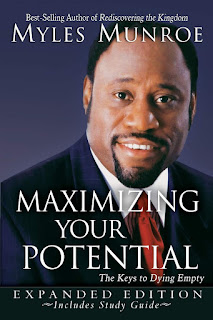Maximize Your Potential Summary
At some point in your journey to find the right career you’ve heard someone say “follow your passion.” You’d love to have a job that fills you with joy, but is this advice worth exploring?
It’s easy to look at the aspirations some people have to be movie stars or professional athletes and think that chasing dreams is a bad idea. But the reality is you don’t have to go so big to become successful doing what you love.
Just look at the talents you already have to find the kind of work that will be the most fulfilling. That’s because you’re happiest when you’re doing what you’re best at. It’s only a matter of finding that thing and turning it into a career.
Thankfully you’ve got Jocelyn Glei to teach you exactly how to do that in her book Maximize Your Potential: Grow Your Expertise, Take Bold Risks & Build an Incredible Career.
Let’s see how much we can learn from these 3 lessons the book teaches:
1. You will find your dream job by focusing on your skills and the lifestyle you desire.
2. Don’t just try to stay good at your job, reaching your full potential requires a yearning to improve.
3. Become willing to take risks if you want to take advantage of opportunities.
You’d better be ready to have a fulfilling career because after this it’s going to be almost inevitable! Let’s get right into it!
Lesson 1: Focus on the lifestyle you desire and your skills to find your dream job.
It’s easy to hear someone talk about being in a job they love and think it must have just fallen into their lap because they followed their passion. But this isn’t how it works. Getting there requires a bit more planning and focus on the right things.
What you don’t see beneath the surface of those who are happiest at work is the fulfillment they get from the lifestyle and culture of the job.
Take Bill McKibben for instance. He’s happy in his work as an environmental journalist, but not because he loves writing. It’s more about the positive influence he can have on the world and the flexible hours and location of his work.
McKibben wasn’t always a great writer, he had to develop his abilities. As an undergrad, he wrote for the Harvard Crimson newspaper. It took tenacity and over 400 articles for him to get good enough to write for The New Yorker.
That wasn’t the end of his practice though. He kept improving so that he could eventually become his own boss and quit to write his first book.
Lesson 2: Develop a yearning to improve instead of just trying to stay good at your work.
Are you the kind of person that wants to stay proficient at your job? Or do you take an outlook of trying to get better into work each day? If you want to stay great at what you do and find happiness in your job, you need to always seek to get better.
Merely having a “be-good” attitude holds you back by making you want to prove that you’re capable. When you don’t try to get better you end up stagnating and growing unsatisfied. You also hinder others because their success makes you uncomfortable.
Instead, you need a “get-better” attitude. These individuals constantly look to others who are better than they are as an opportunity to develop their skills and learn.
When you develop this mindset you’ll focus not on comparing yourself to others but instead to your past self, to make sure that you’re improving every day. This will make you more resilient, help you handle failure better, and grow your ability to see the opportunity in difficulties.
If you’re reading this and worried about your “be-good” outlook, don’t worry, you can change your mindset!
Start by removing your fear to make mistakes. This will make you less likely to mess up and better at catching errors when they do happen. Also, develop a willingness to ask questions and get help whenever you need it.
And remember, research shows that people see you as more capable when you ask for help, not less!
Lesson 3: You can only take advantage of opportunities if you’re willing to take risks and overlook pitfalls.
Our ancient ancestors usually didn’t have very long lives. But their brains did try to protect them from animals, weather, and other dangers by adapting to become better at avoiding risk.
Unfortunately, you still have this aversion to uncertainty today. But your brain goes a little too far in trying to keep safe and ends up preventing you from taking advantage of some amazing opportunities.
Of course, it’s impossible to try to predict everything that’s going to happen. You can analyze the potential outcomes of a decision thoroughly and you’ll still get doubts about whether you chose correctly after it’s all said and done.
It’s natural to fall into these traps your brain sets, but you can retrain your mind to focus on the potential benefits instead of the risks.
Take Coca-Cola’s experience expanding into East Germany after the Berlin Wall came down for instance.
The management team was eager to take advantage of the opportunity, but their division president Don Keough immediately dismissed the risky move. He wouldn’t rethink his decision until after the whole team threatened to quit.
Eventually, the group decided it was worth the risk, expanded into East Germany, and, although there were pitfalls, succeeded in building a profitable market.
Anyone can find plenty to be afraid of when new opportunities arise. But it takes someone special to look over their fears and see the potential that can come from taking risks!
Final Words
I loved Maximize Your Potential and I think you will too! It’s really nice to get some advice that teaches people how to get out of the “daily grind” and into a job that actually lines up with their passions. If you’re looking for a book that will change your life by improving your career, this book is for you!








